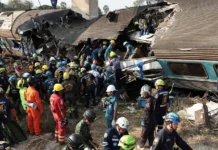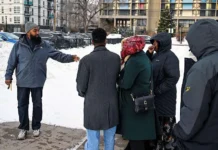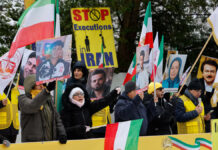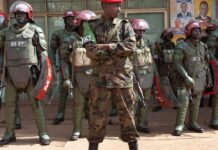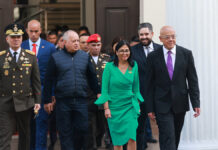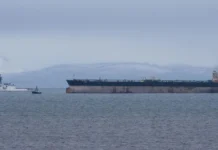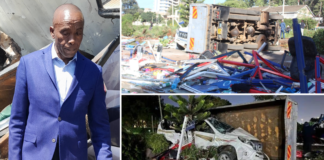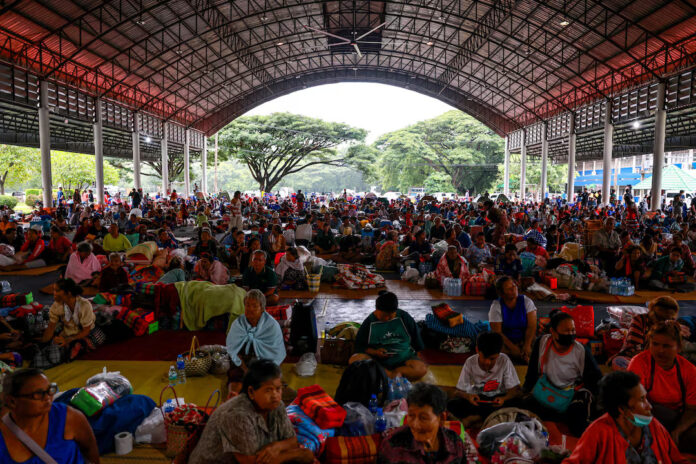
Fighting between Thailand and Cambodia extended into a third day on Saturday, with new flashpoints erupting along the long-contested border, deepening fears of a broader regional conflict and prompting renewed calls for peace from Southeast Asian leaders.
The ongoing violence, which has now claimed the lives of at least 33 people and displaced more than 130,000, marks the worst border clashes between the two nations in over a decade. Clashes broke out again early Saturday in new areas, including Thailand’s coastal province of Trat and Cambodia’s Pursat Province, more than 100 kilometers from the original conflict zone, signaling a widening of the hostilities.
Both Bangkok and Phnom Penh continue to trade accusations, each claiming they acted in self-defense. Cambodian authorities allege Thailand launched a “deliberate, unprovoked, and unlawful military attack,” while Thailand insists Cambodian troops crossed into its territory and planted landmines, injuring Thai soldiers.
“We got so scared with the sound of artillery,” said Samrong Khamduang, a 51-year-old Thai resident who fled her farm near the border on Thursday. “But my husband stayed back and now we lost the connection. I couldn’t call him. I don’t know what is happening back there.” Samrong is currently sheltering with over 5,000 others at a university compound in Thailand’s Sisaket province, which has been transformed into a temporary displacement center.
As of Saturday evening, Thailand reported the deaths of seven soldiers and 13 civilians, while Cambodia confirmed five soldiers and eight civilians had been killed, according to Cambodian Defence Ministry spokesperson Maly Socheata.
The violence stems from a long-standing territorial dispute over undemarcated sections of the 817-kilometer shared border, particularly around the historic Ta Moan Thom and Preah Vihear Hindu temples. Although the International Court of Justice awarded Preah Vihear to Cambodia in 1962, tensions reignited in 2008 when Cambodia sought to register the temple as a UNESCO World Heritage Site, a move Thailand opposed, leading to deadly skirmishes in the following years.
Cambodia has now formally appealed to the international community to condemn what it describes as Thai “aggression” and called on global actors to intervene and prevent further military expansion. “These deliberate military preparations reveal Thailand’s intent to expand its aggression and further violate Cambodia’s sovereignty,” the Cambodian Defence Ministry said in a statement on Saturday.
Meanwhile, Thailand maintains that dialogue is the only viable path to resolution and reiterated its preference for a bilateral approach, rejecting Cambodia’s push for international arbitration.
At the United Nations Security Council on Friday, Thai Ambassador Cherdchai Chaivaivid accused Cambodia of escalating tensions through cross-border incursions and landmine deployment. He urged an immediate halt to hostilities and a return to negotiations. Cambodia, in turn, disputed those claims and accused Thailand of mobilizing additional military hardware along the border.
Amid the deteriorating situation, Malaysian Prime Minister Anwar Ibrahim, who currently chairs the Association of Southeast Asian Nations (ASEAN), has stepped up efforts to broker a ceasefire. Speaking in Kuala Lumpur, Anwar said Cambodia has already backed his ceasefire proposal, while Thailand has agreed “in principle.”
“There is still some exchange of fire,” Anwar told Malaysia’s state news agency Bernama. “I have asked my foreign minister to liaise with the respective foreign ministries and, if possible, I will continue engaging with them myself, at least to halt the fighting.”
With tensions escalating and no breakthrough yet in sight, the prospect of further casualties looms, raising urgent questions about ASEAN’s ability to de-escalate the crisis and whether international pressure will be enough to prevent a broader military confrontation between the two Southeast Asian neighbors.
Written By Rodney Mbua










